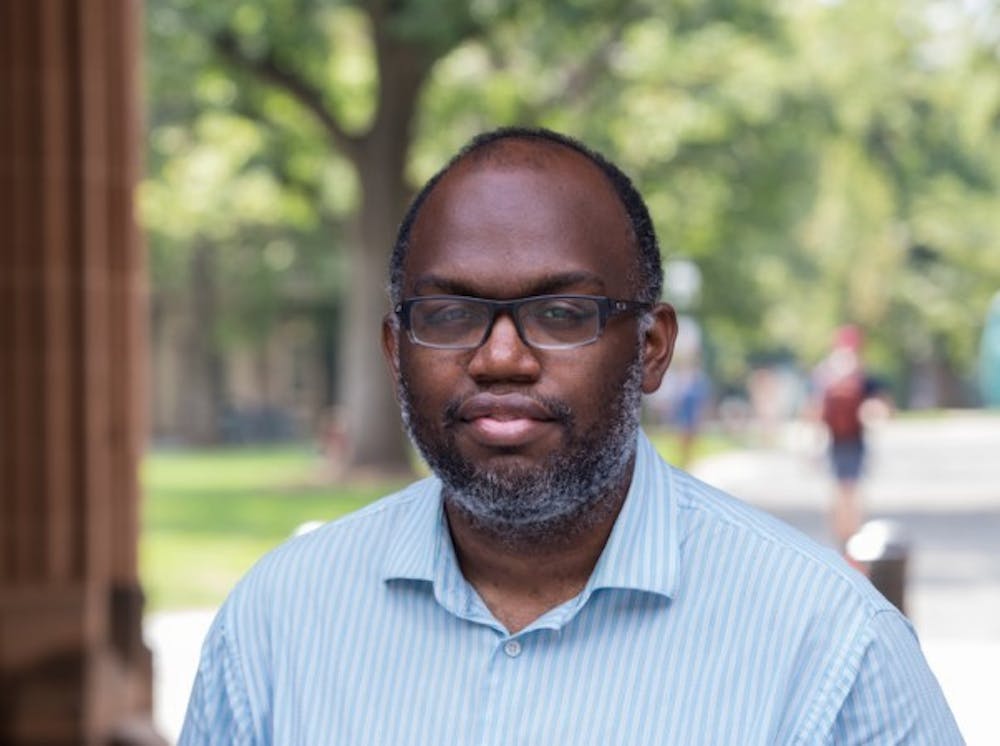Assistant professor of classics Dan-el Padilla Peralta ’06 became the target of racist remarks at an annual Society for Classical Studies (SCS) conference on Jan. 5, in San Diego, Calif.
During the question-and-answer period of a panel discussion on “The Future of Classics,” audience member and unaffiliated scholar Mary Frances Williams directed a racist comment towards Peralta.
After each panelist gave brief introductions and speeches, Williams was one of the first to approach the microphone. According to Peralta’s fellow panelist professor Joy Connolly ’91 of the City University of New York Graduate Center, Williams expressed her view that the classics ought to be the uncritical study and preservation of Western civilization.
After another panelist, professor Sarah Bond of the University of Iowa, responded in defense of a more progressive vision of the field, Williams continued the back-and-forth.
There was a palpable impatience in the audience as several others waited in line to ask questions, Connolly said. Another scholar approached Williams asking her to put down the mic.
“In the next minute, Williams made a comment that Professor Peralta only has his job because he’s black,” Connolly said. “There was a mix of stunned silence in the room and expressions of disbelief and anger that she would say something so hateful.”
Peralta graduated from the University summa cum laude in 2006, having written two senior theses and four junior papers on his way to salutatorian. He has since earned an M.Phil in Greek and Roman History from Oxford and a Ph.D. in the Classics from Stanford, and was a member of Columbia’s Society of Fellows before returning to the University to teach.
Williams did not respond to multiple requests for comment by The Daily Princetonian.
In an email to “Inside Higher Ed,” Williams denied the controversial nature of her statement and asserted it is important to “stand up for classics as a discipline and promote it as the political, literary, historical, philosophical, rhetorical, and artistic foundation of Western civilization and the basis of European history, tradition, culture, and religion.”
The incident came not long after two other classicists of color, who were present to receive an award, were stopped and asked for identification by security at the conference site, an occurrence which Peralta spoke about during the panel.
The SCS released a statement the following day condemning these acts of racism.
“There is no place for racism on the part of members, attendees, vendors, and contractors at the meeting,” the organization wrote.

When asked whether the incident felt entirely anecdotal to him, Peralta explained that, regrettably, it came from “the field of the ordinary.” He and many fellow scholars of color have experienced such sentiments, in both veiled and more blatant forms.
“In my memoir, I describe how when I was first admitted to Princeton as an undergrad, one of my classmates explicitly indexed my racial identity to the fact that I was accepted,” he said.
He called for his colleagues to engage in “critical introspection.”
“Folks in classics specifically and in the academy at large need to do a better job of valuing the contributions of folks of color,” he said.
University classics department chair professor Andrew Feldherr was in the audience and expressed that, although he had never witnessed anything quite like the specific incident, the underrepresentation of minorities in the field is unmistakable.
“It is extremely important that, as a well-respected department in the field, we stand up for diversity,” Feldherr said.
Nicolette D’Angelo ’19, Rhodes Scholar and classics concentrator, called the incident “appalling but not surprising.”
“There are a lot of people who are labelling it a freak incident perpetrated by someone outside the field, given that the person who made the comment is an independent researcher, but I would say that this is a symptom of a historically pervasive problem,” she said.
D’Angelo described classics as the “last hold-out of the humanities disciplines when it comes to social issues.”
“I look at the other humanistic disciplines like English and history, especially at Princeton they seem to already have incorporated critical pedagogy when it comes to race, and I’m wondering when classics will finally do the same,” she continued.
Connolly agreed that classicists needs to work both individually and collectively to address the problem.
“We, as in white scholars, need to listen to the experiences of scholars of color in the field and work together to eradicate any practices that may perpetuate these [racist] thoughts,” she said.
Nevertheless, Peralta said he remains hopeful for the future of the field, asserting the potential for a “transformative moment.”
“For folks of color thinking of entering the discipline, we have the opportunity to begin the slow work of remaking it in our own image,” he said. “If this field is to change, it will change because of us.”









